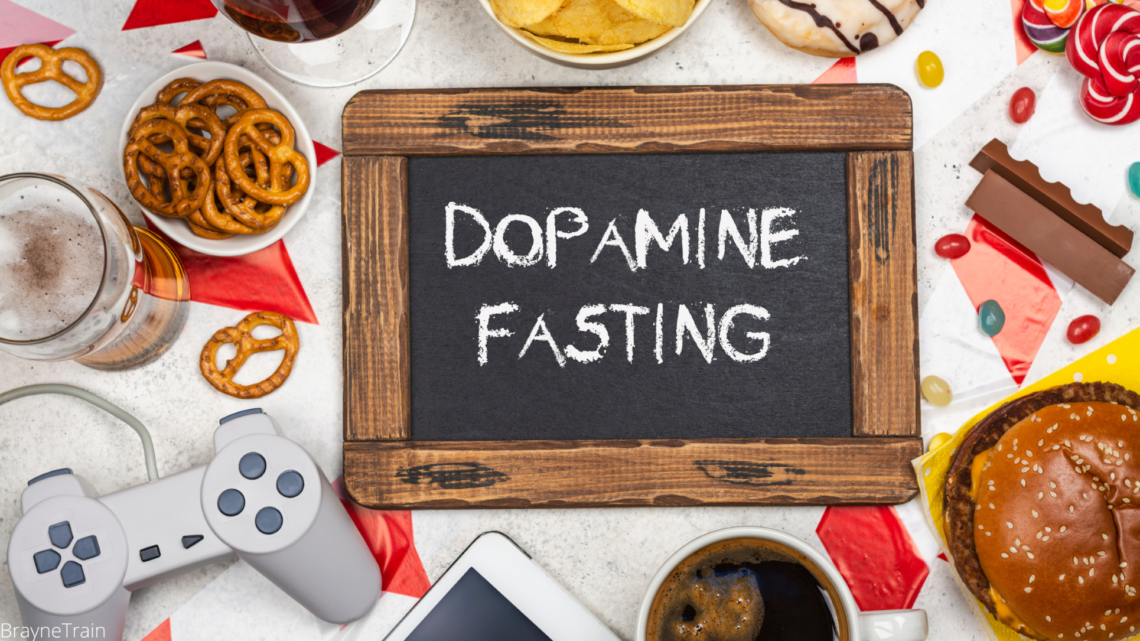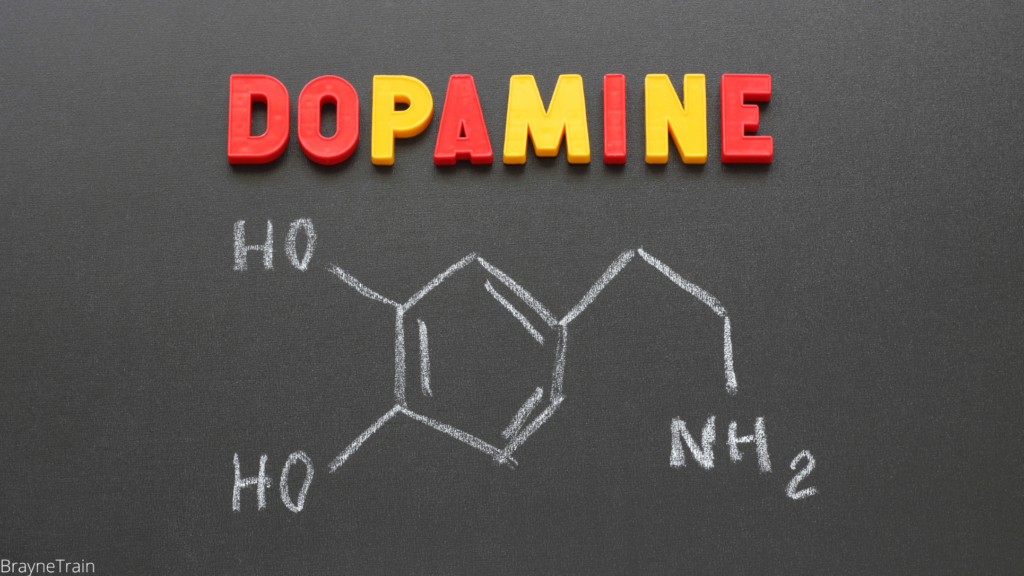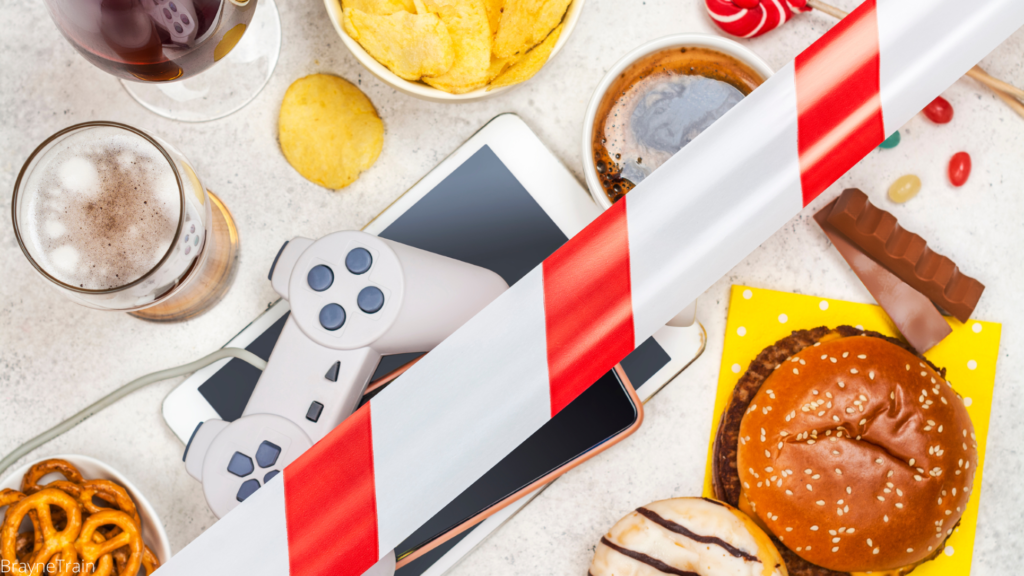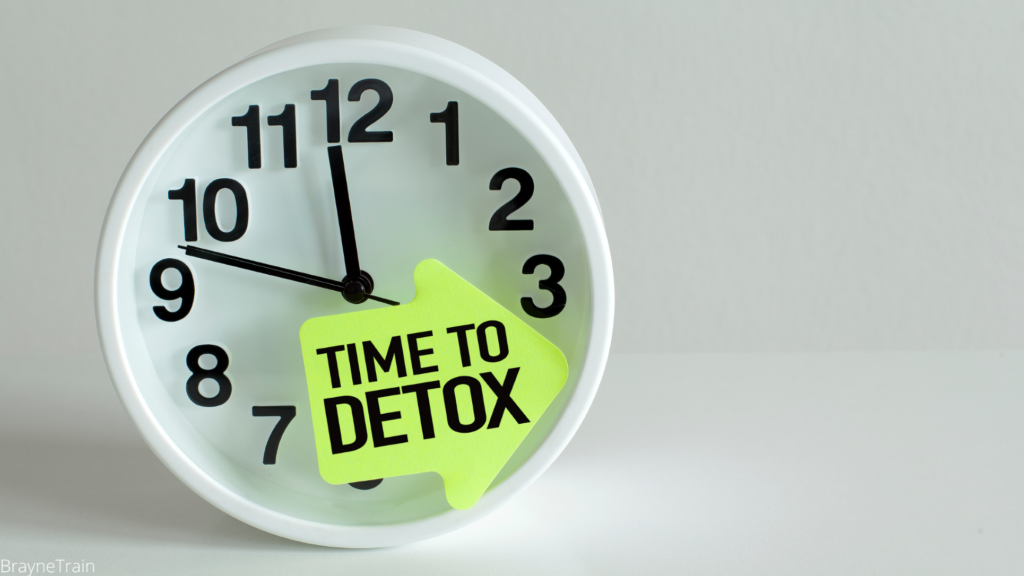
What is a Dopamine Detox, and Does it Work?
Have you heard of Dopamine Detox or Dopamine Fasting but you are not sure what it actually means?
Well, we are here to help, we have gathered all the scientific information about dopamine detox and whether or not it actually works, and we will explain it here in this post.
A dopamine detox is abstaining from activities or food that trigger a dopamine release in the brain. Dopamine is a neurotransmitter released in response to pleasurable activities and its overstimulation can lead to addiction. A dopamine detox helps restore balance, stop the toxic cycle, and reset the mind.
Intrigued? if you want to know how a dopamine detox can help reset your mind, keep on reading!

What is Dopamine?
Dopamine often is referred to as the feel-good hormone; however, dopamine is not an actual hormone.
Dopamine is a neurotransmitter and part of the body’s reward system.
When you experience something you enjoy, such as eating chocolate, playing video games, or having sex, dopamine is released, and it temporarily makes you feel pleasure.
Intermittent spikes of dopamine are healthy and beneficial for survival and motivation.
However, overstimulating the dopamine response can have detrimental effects, often leading to addiction.
Can Dopamine Cause Addiction?
Certain activities and substances such as junk food (food high in carbohydrates and sugar), drugs, alcohol, nicotine, sex, video games, exercise, and porn can cause massive spikes of dopamine.
In comparison, healthy foods such as broccoli and lettuce or activities such as running errands do not spike the same level of dopamine. Therefore, they are not considered pleasurable.
The anticipation of the reward also spikes dopamine levels. Once you achieve what you desire, your dopamine levels will drop.
These massive dopamine spikes are short-lived, lasting from a few seconds to a few minutes only.
When the dopamine spike crashes, it depletes the dopamine reserve. When your dopamine reserve is low, you feel agitated, upset, and dissatisfied.

What Activities & Foods Trigger Massive Dopamine Spikes?
The chart below shows examples of the substances, foods, and activities that can cause massive spikes in dopamine; in other words, they can be highly addictive.
The amount of dopamine spike is relative to the dopamine baseline.
For example, a 2X spike means the substance or activity doubled the dopamine levels in the brain.
| Trigger | Dopamine Increase above baseline |
|---|---|
| Chocolate | 1.5 X |
| Nicotine | 2.5 X |
| Sex (both the pursuit and the act of sex) | 2 X |
| Cocaine | 2.5 X |
| Amphetamine | 10 X |
| Exercise (if you enjoy exercising) | 2 X |
| Caffeine | Not much |
Caffeine does not significantly increase dopamine. However, studies suggest that regular caffeine ingestion helps enhance and increase dopamine receptors, improving your dopamine experience.
Dopamine addictions include:
- Binge eating
- Drug addiction
- Video game addiction
- Sex addiction
- Alcoholism
- Porn addiction
- Shopping addiction
- Social media addiction
The problem is that when people try to stop their addiction, it often causes withdrawal symptoms and can force them to return to their pleasure-seeking behavior.

What is a Dopamine Detox?
Dopamine detox is fasting from dopamine by removing the triggers that cause the dopamine spike.
Dopamine detox is designed to help reset the mind and restructure our relationship with this pleasure neurotransmitter.
Suppose you have felt anxiety, sadness, and lack of motivation. In that case, it might be due to a depletion of your dopamine reserve.
A dopamine detox helps change your relationship with dopamine and stops the toxic cycle.
Dopamine detox will not change your body’s chemistry; it will not be the final answer for your dependence on dopamine.
However, a dopamine detox can:
- Increase your resistance to temptations.
- Reset Your mind and body.
- Help break the toxic cycle.
- Help eliminate distractions you use to avoid living your best life.
- Stop your pleasure-seeking behaviors that may harm your quality of life.

How to Practice Dopamine Detox?
- Find what your trigger is.
- Target the behavior or the compulsion you struggle with most. (TV, Phone, social media, junk food, porn, etc.)
- Set aside a day per week to refrain entirely from that trigger.
- Create a rule book. List all the do’s and don’t in the rule book.
- Clear all distractions and remove or put aside the trigger you are fasting from (put your phone away, get rid of all junk food, delete your social media, etc.)
- Let people close to you know about your detox so they can support you and also won’t be in your way.
- Start first thing in the morning.
- Do activities that boost your happy hormones (endorphins, serotonin, GABA, etc.). These activities could include: meditation, exercising, nature walks, painting, practicing a hobby you enjoy, etc.
- After you are done with your fast, sit down and reflect on how you felt during and after the detox.
- It’s best to start with a 12 or 24-hour detox. Gradually you can add time to your detox—for example, a two-day or a week detox.
Cultivate Your Happy Hormones.
Certain hormones trigger happiness; these include serotonin, endorphins, and GABA.
These hormones help improve mood and increase happiness, relieve stress and anxiety, relieve pain and regulate depression, and many other benefits.
Engaging in activities that increase these hormones can help relieve the stress of a dopamine detox.
Activities such as meditation, exercising, socializing, Yoga, nature walks, mindfulness practice, etc.

How Do You Naturally Increase Your Dopamine?
- Mucuna Pruriens: Mucuna Pruriens is a tropical legume traditionally used in Ayurvedic medicine. Known as velvet bean, Mucuna Pruriens is a rich source of the neurotransmitter dopamine. Mucuna Pruriens has been shown to boost dopamine levels, and you can purchase it over the counter.
- L-Tyrosine: L-tyrosine is an amino acid that plays an essential role in dopamine production. L-tyrosine supplements have been shown to increase dopamine levels.
- Intermittent fasting: Some studies indicate Intermittent fasting can help increase dopamine levels by stimulating the body’s natural production of dopamine. In addition, intermittent fasting may help improve dopamine receptor function, which means the body becomes better at utilizing dopamine.
- Cold exposure: Research indicates exposure to cold, for example, an ice bath or a cold shower, can increase dopamine levels by 2.5X. In addition, studies show that the dopamine spike from cold exposure can last up to 3 hours.
Disclaimer: Be sure to check with your doctor and do your research before attempting any cold exposure treatments.
Takeaway:
A dopamine detox may be your answer if you feel like your dopamine addiction is negatively impacting your life. A dopamine detox or fast can help change your relationship with this neurotransmitter and help you gain back control of your life.
We hope the information in this post helped you understand what a dopamine detox is and how it can benefit your life. Have you tried dopamine fasting? Let us know in the comments. Thank you!
References:
Liu C, Kaeser PS. Mechanisms and regulation of dopamine release. Curr Opin Neurobiol. 2019 Aug;57:46-53. doi: 10.1016/j.conb.2019.01.001. Epub 2019 Feb 12. PMID: 30769276; PMCID: PMC6629510.
Solinas M, Belujon P, Fernagut PO, Jaber M, Thiriet N. Dopamine and addiction: what have we learned from 40 years of research. J Neural Transm (Vienna). 2019 Apr;126(4):481-516. doi: 10.1007/s00702-018-1957-2. Epub 2018 Dec 19. PMID: 30569209.





5 Comments
Pingback:
Pingback:
Pingback:
Pingback:
Pingback: